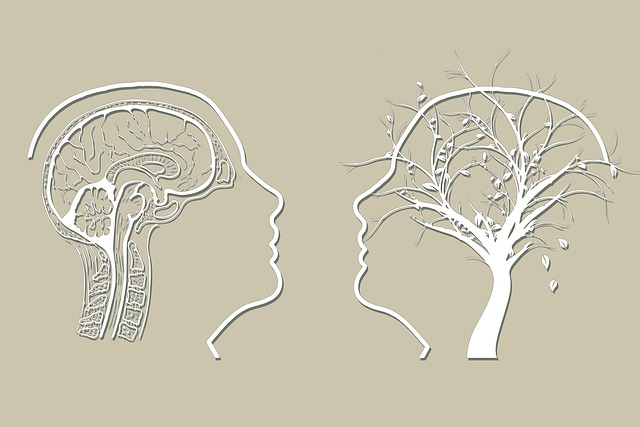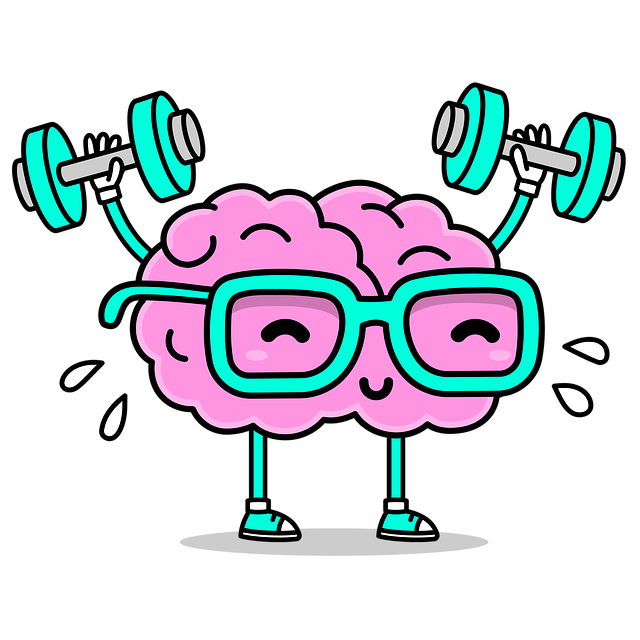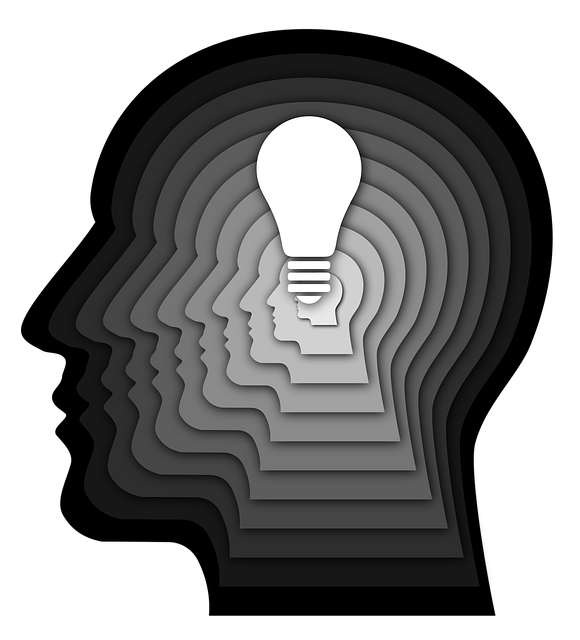Somatic Experiencing (SE) is a specialized therapy tailored for young adults, focusing on the mind-body connection to improve mental wellness. This innovative approach leverages observations of physical sensations and breathing patterns to gain deeper insights into emotional states and trauma histories, complementing traditional data collection methods. Effective interpretation of SE data involves risk management planning, mental wellness journaling, and ethical guidelines to ensure confidentiality and personalized treatment. In today's digital age, combining SE with tailored interventions enhances self-awareness and resilience, transforming mental health care for young adults.
Mental health data analysis is a powerful tool for understanding and improving individual well-being, especially among young adults. This article delves into crucial aspects of mental health data interpretation, highlighting the significance of therapy approaches like Somatic Experiencing. We explore effective data collection methods in clinical practice and research, focusing on how insights from these practices enhance personalized treatment strategies. By examining Somatic Experiencing data, we uncover innovative ways to support young adults’ mental wellness through evidence-based interventions.
- Understanding Mental Health Data: A Foundation for Effective Analysis
- The Role of Therapy for Young Adults: Somatic Experiencing as a Therapeutic Approach
- Data Collection Methods in Mental Health Research and Clinical Practice
- Interpreting Somatic Experiencing Data: Uncovering Insights for Personalized Treatment
- Enhancing Mental Wellness through Evidence-Based Analysis and Intervention Strategies
Understanding Mental Health Data: A Foundation for Effective Analysis

Understanding Mental Health Data is a critical foundation for effective analysis and interpretation. This involves recognizing that mental health issues manifest in diverse forms, from anxiety and depression to more complex trauma-related disorders like those treated through Somatic Experiencing therapy for young adults. Each individual’s experience is unique, shaped by personal history, cultural context, and environmental factors. Therefore, data collection methods must be carefully chosen to capture these nuances. By employing a comprehensive approach that includes self-reported surveys, clinical assessments, and even sensor data from wearable devices, researchers can gain deeper insights into the intricate tapestry of mental wellness and its various challenges.
In this landscape, Crisis Intervention Guidance plays a pivotal role in interpreting data. Conflict resolution techniques often embedded within crisis intervention strategies help to unearth underlying issues and patterns within the collected data. For instance, identifying recurring themes or triggers that lead to escalation points can inform the development of targeted interventions. By understanding these dynamics, mental health professionals and researchers can tailor their approaches, ensuring that therapy for young adults, such as Somatic Experiencing, is not just responsive but proactive in its crisis prevention efforts. This holistic view emphasizes the interconnectedness of mental health data analysis, where insights derived from one aspect can inform and enrich the understanding of others, ultimately enhancing overall mental wellness.
The Role of Therapy for Young Adults: Somatic Experiencing as a Therapeutic Approach

For young adults navigating mental health challenges, Therapy plays a pivotal role in their healing journey. Among various therapeutic approaches, Somatic Experiencing stands out as an effective method tailored to this demographic. This holistic therapy focuses on connecting mind and body, recognizing that emotional trauma often manifests physically. By incorporating self-awareness exercises designed to access and release repressed memories and sensations, Somatic Experiencing helps young adults process and overcome past traumas.
This therapeutic approach encourages individuals to tune into their bodies’ signals, fostering a deeper understanding of their emotional states. The result? Enhanced mental wellness, as clients gain the tools to regulate their responses to stress and adversity. As Mental Health Awareness grows, resources like the Mental Wellness Podcast Series Production highlight such innovative approaches, making Somatic Experiencing an increasingly accessible option for those seeking to prioritize their mental health and embrace a more balanced life.
Data Collection Methods in Mental Health Research and Clinical Practice

In mental health research and clinical practice, data collection methods play a pivotal role in understanding and addressing various psychological conditions. One innovative approach gaining traction is Somatic Experiencing, a therapy for young adults that focuses on the mind-body connection. This technique involves careful observation of physical sensations, breathing patterns, and other somatosensory cues to gain insights into an individual’s emotional state and trauma history. By integrating such methods alongside traditional questionnaires and interviews, researchers can collect more nuanced data, enhancing their ability to interpret and support mental health outcomes.
Furthermore, Risk management planning for mental health professionals is essential during data collection processes, especially when dealing with vulnerable populations. Implementing structured protocols, informed consent procedures, and ethical guidelines ensures the safety and well-being of both participants and practitioners. Incorporating these practices alongside effective mental health education programs design can promote robust research integrity while fostering a supportive environment for clients seeking therapy, such as those engaging in somatic experiencing.
Interpreting Somatic Experiencing Data: Uncovering Insights for Personalized Treatment

Somatic Experiencing (SE) is a unique therapy for young adults that focuses on the connection between the mind and body, offering valuable insights into an individual’s mental wellness journey. By interpreting data collected from this therapeutic practice, mental health professionals can gain profound understanding of their clients’ experiences and tailor treatment plans accordingly. SE involves careful observation and documentation of bodily sensations, emotional responses, and memories, providing a rich dataset for analysis. This qualitative data offers a window into the client’s past traumatic experiences and current stress responses, which are often at the root of mental health issues.
Effective interpretation requires a systematic approach. Mental wellness journaling exercises can be a powerful tool to organize and reflect on SE data. Professionals should encourage clients to record their bodily sensations, triggers, and emotional patterns over time. This self-monitoring not only aids in identifying stressor triggers but also promotes awareness and self-regulation. Moreover, risk management planning for mental health professionals is essential when handling SE data. They must ensure confidentiality and use the information responsibly, considering each client’s unique needs and vulnerabilities to prevent burnout and provide personalized treatment.
Enhancing Mental Wellness through Evidence-Based Analysis and Intervention Strategies

In today’s digital era, mental health data analysis plays a pivotal role in enhancing the well-being of young adults. By leveraging evidence-based analysis, professionals can uncover profound insights into the mind and behavior, enabling targeted interventions. Through rigorous assessment and interpretation of data, therapists can tailor therapy for young adults, incorporating effective techniques like Somatic Experiencing to address complex emotional issues. This approach not only respects the individual’s unique journey but also paves the way for lasting positive change.
Integrating Mind Over Matter principles within this framework is a powerful strategy. Mental wellness journaling exercises, for instance, offer guidance in cultivating self-awareness and reflection. By documenting thoughts, emotions, and experiences, individuals can develop inner strength and resilience. This practice complements therapy sessions, fostering continuous growth and empowering young adults to take charge of their mental health journeys.
Mental health data analysis is a powerful tool for understanding and improving overall well-being, especially among young adults. By employing evidence-based methods like Somatic Experiencing therapy, professionals can interpret complex data and develop personalized treatment plans. This approach, combined with effective data collection methods, ensures that interventions are tailored to individual needs, fostering a more holistic and successful mental health journey. Through ongoing research and analysis, we can enhance our understanding of mental wellness and create innovative strategies for a healthier future.











